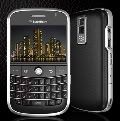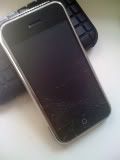I think that this will take place for two reasons:
1. The slowed-down economy needs money somehow. By selling at more accommodating prices, people will spend money.
2. Reducing the iPhone's price from $399 to $199 made the iPhone available to more users, who couldn't afford something at double the price, so by reducing it further, it opens things up to more customers. Especially as a sub-$100 solution.
In such a scenario, Wal Mart, Apple, and AT&T would be the ones benefiting. But who's the real big winner in this case?
Apple wins because their units get pre-sold to Wal Mart, and they get more than $99, because of the carrier subsidy.
AT&T wins, but not right away. They have to pay out the money for the carrier subsidy first, and any revenue they make off of this (as it would in any case) is residual, and therefore, not guaranteed, as there can always be the deadbeat client who signs on just to get the iPhone, but never pays their bills.
However, in my opinion, Wal Mart is the biggest winner of them all.
Why?
Of course, they are the only thing that stands between the customer and the iPhone, so they get the money, and sign anybody who buys one on for the necessary plan or plan upgrade, and earn the associated commission with that, as well as the profit for the handset itself.
Like with any electronic device, the bucks aren't made on the device itself - they're all made on the accessories, such as the cases, screen protectors, speakers, car chargers, etc. - all of which cost pennies to make, and can be sold anywhere from $9.99-$29.99 each.
Looking around on the WalMart site - I see cases for as high as $48.60. Given the fact that I see iPhone cases in lots at around $0.99 per case on eBay (not as good quality, but not the point) - I've got a feeling that even that high end Griffin case, didn't even cost $1.00 to make.
Packaging, shipping, profit, etc. all factored in - at the absolute minimum, Wal Mart is likely tripling on this - which would mean that their cost is $16.20.
Let's say this does take place - and Wal Mart successfully sells one million iPhones, and half the buyers purchase cases. Even if they made only $10.00 per case - their gross profit would be $5,000,000.00 on cases alone. Then there are car chargers, extended battery packs, charging docks, extra chargers, headphones, and speaker systems. All of which are accessories to the iPhone, and would increase in sales as a result of the $99 iPhone's release.
Additionally - customers who may not necessarily frequent Wal Mart, might just come in there to get their iPhone that they thought they'd never have at such a price. Then they might notice a sweater that they like. That ottoman would look great in the living room too. Check out that price on that LCD tv! You know, I've always thought about getting a new one...
A full shopping cart and an empty wallet later, they're heading out to the car.
Wal Mart has a tendency to do that to people. By getting more people in there to do it to, it only makes them more money.
What's my point in writing this post? Invest in Wal Mart. Should this $99 iPhone deal go through, they will experience immediate, substantial gains.

